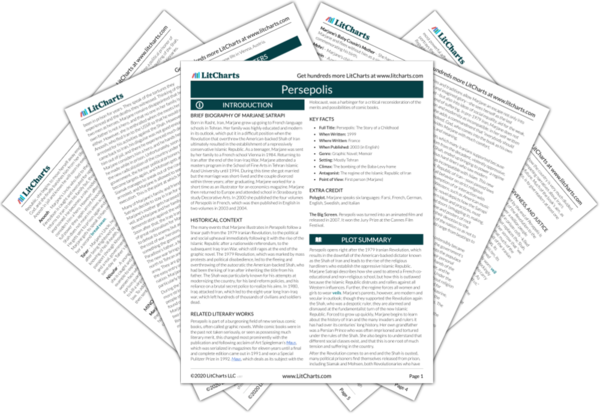When reaches her teenage years, she smokes a in order to rebel against her strict rule. Marjane skips school in order to buy an illegal hamburger, and when she returns her mother yells at her and indicates that to skip school is to throw away her future. Later that day, Marjane smokes a cigarette as a symbolic gesture against her mother’s “dictatorship” and feels that she has reached adulthood. This insubordinate gesture, which is actually quite childish, becomes a way to deal with the heavy stresses of the war. On the one hand, Marjane wants to be a normal teenager; on the other hand, every move she makes might have enormous consequences for her future—taking the wrong step might ensure that, in fact, she has no future. Consequently, the gesture is broader even than Marjane intends, and is directed against all the repressions in her life: from her parents, who rightly pressure her to behave responsibly, but also from the regime, which makes life difficult and restrictive enough that she has to sneak around in order to lead what she considers a normal life. That Marjane uses the language of the regime—“dictatorship”—to describe her relationship with her mother indicates just how intertwined her personal life has become with the larger political issues of her day.
